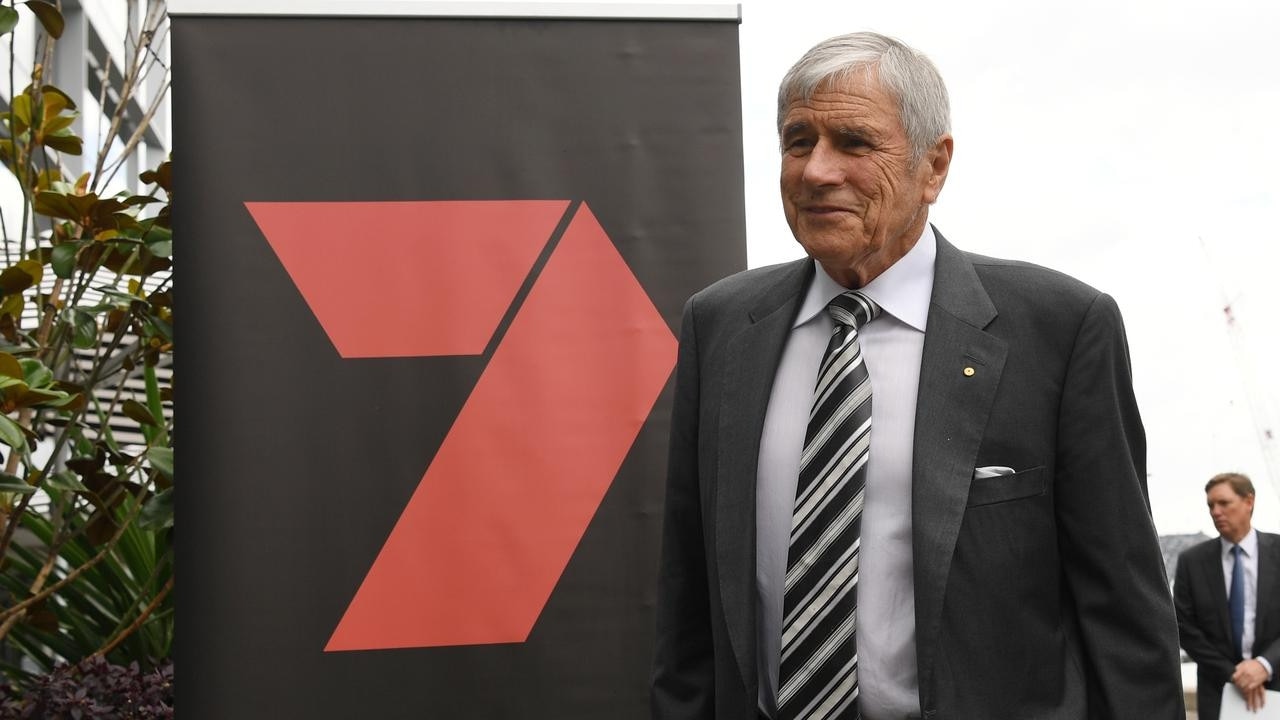Contrarian whose code of freedom rages against Left-Right rigidities
FOR a British journalist on his first visit to this country, Brendan O'Neill showed a confident grasp of Australia's political topography.
FOR a British journalist on his first visit to this country, Brendan O'Neill displayed a confident grasp of Australia's political topography when he appeared on ABC1's Q&A last Monday.
He seemed indifferent to being invited back into the country as he accused Labor's Tanya Plibersek of climate change alarmism, told former Victorian police commissioner Christine Nixon to stop playing the victim card and accused Crikey founder Stephen Mayne of illiberal censorship.
The Twitter community didn't know where to turn. "Wasn't this bloke a communist? Hand back your sickle, comrade," tweeted one. "Send Brendan O'Neill to Malaysia," said another.
O'Neill, the editor of British website Spiked Online, has made a modest living for more than a decade trading opinions that would turn a well-mannered dinner party into a finger-jabbing shouting match.
In an overcrowded global market for online commentary, Spiked has forced itself to the top of the shelf on the strength of attitude, persistence and an intellectual reasoning that refuses to aid any conventional political cause.
It rages against the extremes of modern politics, to the frustration of its cultural critics, who find it hard to place it on the conventional left-right axis. They have taken to labelling Spiked as "contrarian", reflecting both their intellectual bemusement and their suspicion of O'Neill's motives.
"Things have shifted so much the Left/Right thing really doesn't matter that much," O'Neill told Media. "The divide today is between those who support individual liberty and those who do not.
"The abandonment of freedom by the Left has allowed the Right to pose as the guardians of liberty, which is a very strange situation."
For O'Neill, visiting Australia for the Centre of Independent Studies Consilium conference, the biggest threat to freedom is intrusive government, not big business. Government encroachment into the private domain, however well intended, discourages personal endeavour and bypasses democracy to impose the values of an elite on the broader population.
He rages, too, against what John Stuart Mill called "the tyranny of custom", the powerful cultural pressure to conform in thought as well as action, which rigidifies into political correctness.
While Spiked undoubtedly dissents from the comfortable moral middle-class consensus on almost everything, its voice is affirmative rather than negative.
It champions principles that O'Neill maintains were once taken for granted by the Left:
open discourse, individual resourcefulness and personal responsibility. It opposes nanny-statism, censorship, the rise of the therapy industry and the smothering welfare state.
It is liberal in the classical sense, a philosophy that draws more from the ideas of the 19th century than the ideology of the 20th, and is underscored by what O'Neill calls "radical humanism".
It is this, together with an opposition to censorship, that puts him in conflict with modern environmentalism, which holds that man must submit to mother nature and that dangerous dissenting voices should not be heard.
Spiked has eclectic ancestors, tracing back to Living Marxism, later LM magazine, the journal of the short-lived Revolutionary Communist Party, which rejected the authoritarian forms of communism but not its humanism and belief in progress. The magazine gained a broad mainstream following in the early years of Tony Blair's New Labour, with editor Mick Hume adopting a libertarian, pro-democratic stance. Sociologist Frank Furedi was a leading intellectual force, challenging trends in modern society that sapped the resourcefulness of individuals and turned everyday conditions into pathologised illnesses.
LM was forced to close in 2000 after losing an expensive libel case against British TV news organisation ITN over an article raising questions about an ITN picture of a Bosnian Muslim in a Bosnian Serb-run camp.
Spiked launched online in March 2001 with Hume at the helm and a mission to wage a war of words against "misanthropy, priggishness, prejudice, Luddism, illiberalism and irrationalism in all their ancient and modern forms". Spiked's website claims its mission would be endorsed by free thinkers such as John Stuart Mill and Karl Marx, and hated by Stalin, " if they were lucky enough to be around to read it".
Attempts by critics such as Guardian newspaper columnist George Monbiot to link Spiked's defence of climate change scepticism to corporate funding have proved fruitless. Spiked's ridiculously underpaid full-time staff of four and two part-timers work out of a cramped office in London, surviving largely on donations.
It retains the discipline of a conventional journal, beginning with a morning conference to decide the priorities of the day and restricting itself to three published pieces, each of which have to earn their place under the banner.
Despite its evolution under O'Neill, Spiked's links to Living Marxism are not forgotten by critics. Clive Hamilton accused O'Neill of being "an unreconstructed Trotskyist" after The Australian began publishing his writing, and that of his alter-ego, Ethan Greenhart, author of satirical book Can I Recycle My Granny?. "What does it say about The Australian when its opinion editor regularly pays Trots for their musings?" Hamilton wrote in New Matilda in 2009.
"The accord between the far Left and the editorial group at The Oz is grounded in their joint belief firstly in the priority of material consumption to human wellbeing and secondly in the right of humans to dominate nature."
O'Neill appears battle-hardened against such claims. After defending leftist betes-noir such as Alan Jones and Rupert Murdoch on Q&A, he took the social media fury in his stride.
Spiked has found itself alongside stranger bedfellows than Australian shock jocks in defending free speech. It has sided with climate change sceptics against censorship, backed Islamic clerics in their right to free speech, defended the Pope against a chattering classes crusade to brand the Catholic Church as evil and stood up for the right of the leader of the British National Party to be heard on mainstream television.
It refused to join the bandwagons against childhood obesity, binge drinking or the alleged corruption of expense-cheating British politicians. It opposed the "post-9/11 moral crusade" that led to wars in Afghanistan and Iraq.
O'Neill remains resistant to labelling, drawing inspiration from a line in Alan Sillitoe's novel Saturday Night and Sunday Morning: "Whatever they say I am, that's what I am not."
Nick Cater is the editor of The Weekend Australian. O'Neill and Furedi, and other Spiked contributors, are published regularly in The Australian and The Weekend Australian



